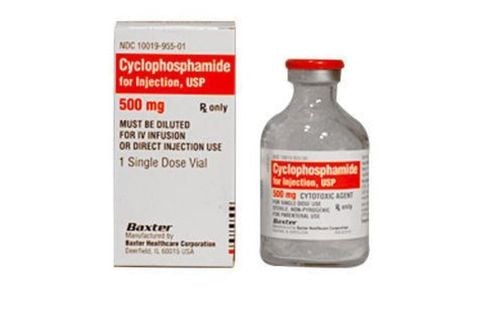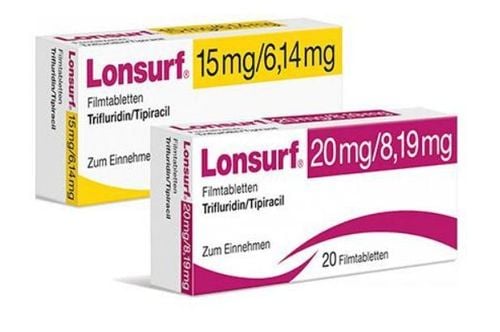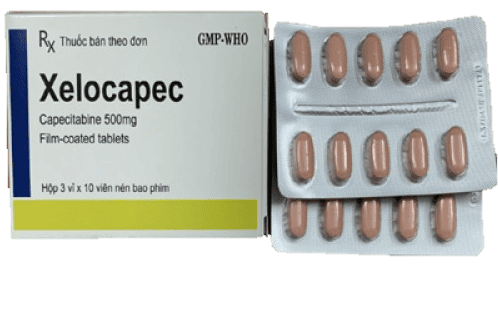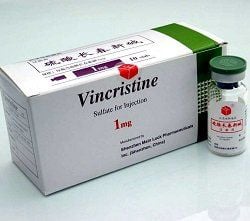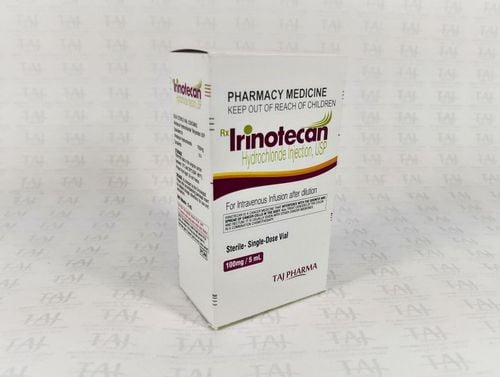This is an automatically translated article.
Salzenbu is used to treat a group of diseases in the respiratory tract. This is a medicine to be used only when prescribed by a doctor. Therefore, users need to consult a medical professional and learn more about the use of Salzenbu.
1. Uses of the drug Salzenbu
Salzenbu is used to treat the respiratory tract. However, you need to refer to some of the following indications to better understand Salzenbu:
Reduce colon or rectal pathology Reduce breast problems Treat part of stomach disease Treat ovarian disease eggs Treatment of cervical problems Treatment of liver and kidney syndrome Treatment of esophageal cancer Treatment of cholangiocarcinoma Treatment of head and neck cancer Treatment of cancer in the renal epithelium. Salzenbu should be specifically prescribed for use by a medical professional to ensure quality and reduce unwanted effects.
2. Dosage and how to take Salzenbu
2.1 Salzenbu Instructions for Use Salzenbu may cause a direct reaction after injection. Because it is a drug for injection, the concentration and dosage need to be very careful. Patients should not arbitrarily mix drugs without the doctor's instructions or specific instructions to use the drug. Avoid improper use of Salzenbu that changes the concentration of Salzenbu.
When preparing the drug solution before injection, the operator needs to be sterile and wear medical gloves. Avoid unsafe conditions when using due to skin contact with the drug because of not wearing protective gear. In addition, medical staff should pay attention to carefully check the infusion equipment to avoid using leaky or poor quality instruments, causing a loss of a drug quantity.
If Salzenbu accidentally gets into your eyes, please notify your doctor or medical staff as soon as possible for handling. Avoid inhaling the medicine or letting it come into contact with your skin. In addition, after using Salzenbu, it should be destroyed with medical waste.
2.2 Salzenbu dosage Children are not recommended to use Salzenbu The elderly do not have a specific dose. You should consult your doctor before taking the medicine. Adults Injection or infusion The therapeutic dose for a patient for whom an infusion is indicated usually depends mainly on the actual weight of the patient. Patients who are debilitated or obese can be influenced by many factors and should therefore be carefully monitored before considering. Normally, for patients with special conditions, the dose can be reduced by 1⁄3 according to the usual dose.
Intravenous infusion is usually dosed in the range of 15 mg/kg. Each use infusion does not use over 1g. Salzenbu medicine will be mixed with 500 ml of 5% dextrose or 0.9% sodium chloride solution and quantified. The average infusion rate is normally adjusted to be 40 drops/min. At the end of a course of treatment, the patient will multiply about 12-15g of Salzenbu. However, long-term treatment is not recommended, take a break of 4-6 weeks between treatments.
Intravenous administration should be used for 3 consecutive days at a dose of 12 mg/kg. From day 5, the dose will be adjusted according to the patient's medical condition. Similarly, the patient's specific expression will be used to evaluate and determine the most appropriate specific injection dose. If the maintenance dose is administered, the dose can be considered in the range of 5-15 mg/kg. Patients on maintenance therapy will receive 1 injection per week and do not use the starting dose during treatment.
Regional artery injection If continuous infusion of Salzenbu into the artery to nourish the tumor may bring about positive results. This is the preferred method over intravenous infusion. However, the effectiveness is high, so the dose should be reduced to 5 - 7.5 mg/kg per day.
3. Notes before taking Salzenbu
Salzenbu is contraindicated when the patient has an allergic reaction to any of the ingredients. If there are other health effects in the following are also contraindications to treatment:
Decreased blood cell count Impaired liver and kidney function Shingles chicken pox Oral ulcers Gastrointestinal ulcers Inflammatory bowel disease Women during and after During pregnancy Malnourished patients People with marrow failure Patients with severe infections Contraindications will not be allowed to use Salzenbu. However, the treatment plan is still based on the medicinal properties of Salzenbu. The doctor will change the patient's medicine with the same effect but minimize the dangerous side effects.
4. Side effects of the drug Salzenbu
Decrease in white blood cell count Anemia due to reduced red blood cell count Digestive system dysfunction Urticaria Urticaria Myelosuppression Liver failure Kidney failure In addition to the reactions mentioned above you may experience a few other reactions. To ensure that there are no dangerous complications, always proactively check your health when possible for the most accurate objective assessment.
5. Interaction with Salzenbu
When using the drug Salzenbu should not be used at the same time with other drugs at the same time. Unless the doctor prescribes it to use it. You can also talk to your doctor to understand the situation of drug interactions in the real case.
What is Salzenbu drug that has been shared by the article above. If you have any questions or need assistance, go to the nearest medical center immediately. Note to avoid self-medication to reduce the risk of drug interactions and dangerous side effects for health.




